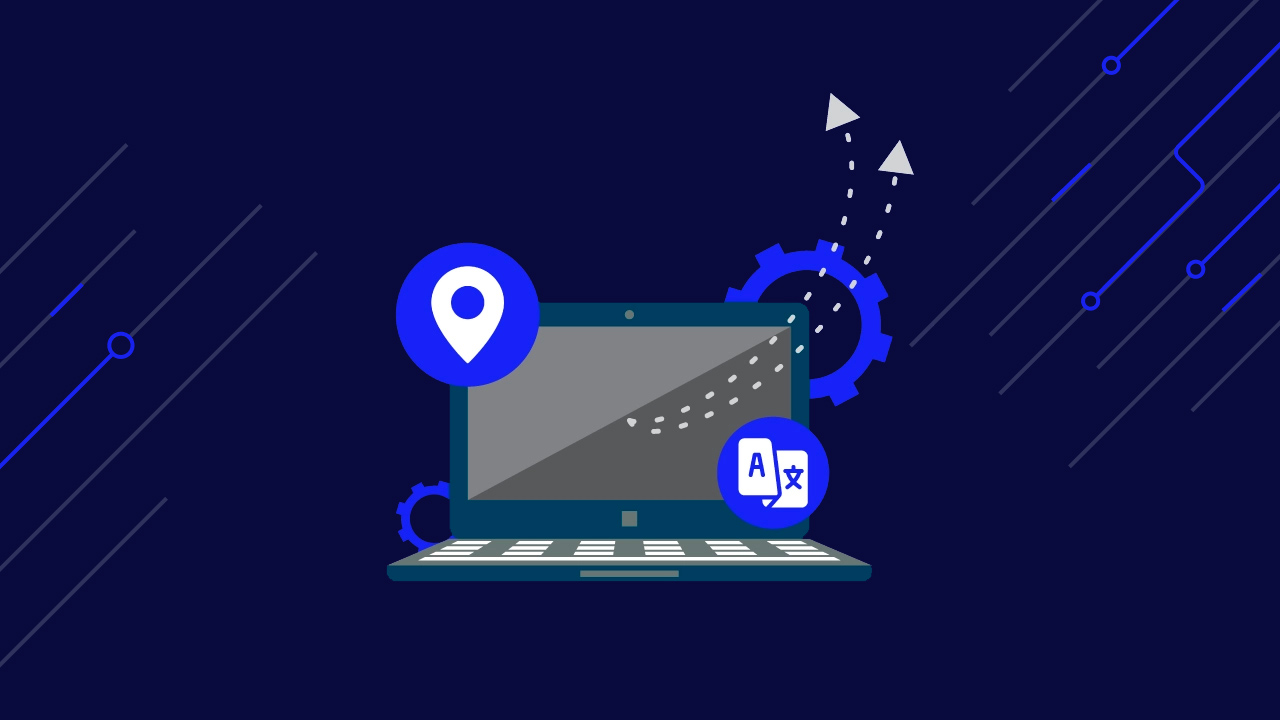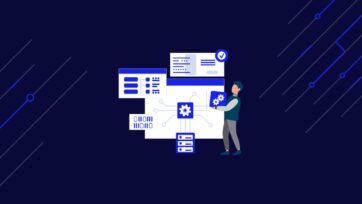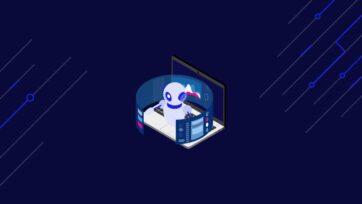The internet is a mine of invaluable data waiting to be collected and analyzed. By doing so, we can draw insights that will allow us to make better, informed business decisions instead of relying on guesswork.
However, to draw definitive conclusions, we need to collect data from as many sources as possible and contrast each dataset.
In most industries, this means gathering information from millions of URLs, which is impossible to do manually. Instead, companies rely on web scraping to automatically collect and organize data at scale.
The challenge with this automation is that most websites can detect scripts and bots by identifying unnatural behaviors based on your IP address. If you’re sending requests too fast or too often, your IP will get blocked, temporarily or permanently cutting your access to the site. To avoid this issue, you can hide your IP address with a proxy server.
Proxies and Web Scraping
In simple terms, a proxy is a bridge between your computer and the server hosting your website. When your script or scraper sends a request through a proxy, the server won’t see your machine’s IP address but only your proxy’s IP.
This is not just useful to avoid bans, but you can also use proxy servers located in other countries or specific areas to access localized data from websites showing different results based on location.
Of course, suppose many requests are sent using the same proxy. In that case, the target server will eventually identify the IP and ban the proxy, so it’s necessary to have access to a pool of proxies to diversify your requests and be able to gather information without risks or hiccups.
That said, not all proxies are equal, and depending on what you need, you’ll want to use a specific kind of proxy.
Here are the most common proxy types:
Free Proxies
Also known as public proxies, these are proxies that can be accessed by anyone online, making them highly unreliable and slow.
Unlike private proxies, these are proxy servers with poor infrastructure and lack any kind of security measures – for all you know, the provider could be logging all traffic.
This could be a good way to see how they work, but we discourage you from using them in a real project.
Shared Proxies
In a shared proxy service, multiple clients will have access to the same proxy pool. While anonymity is guaranteed, you might find yourself unpredictably restricted on some sites due to the actions of another user.
Although the shared system makes these proxies cheaper, it’s not a good option for web scraping at scale, as many of these IPs will be detected as a bot quickly, breaking your entire project.
Dedicated or Private Proxies
As the name suggests, these are proxies only you would have access to, making them more reliable and secure. However, having dedicated standard IPs is still not enough for web scraping millions of pages.
Because you’ll use just a handful of IPs to send all your requests, the server will quickly detect the behavior and block your proxies.
The best use for these three types of proxies is browsing the web anonymously and not for any kind of data collection task.
Data Center Proxies
IP farms located in data centers are able to create a massive number of IPs that can be used and discarded fairly quickly. Because of the sheer number of IPs, you can send hundreds of thousands of requests without repeating the same IP.
When using data center proxies, you’re focusing on the number of IPs, not the quality (per se). You have to understand these proxies all share the same sub-network of the data center, so after sending a couple of requests through the same one, these are easily banned.
However, data center proxies are a great way to get started scraping sites without complex and advanced anti-scraping techniques.
Residential Proxies
In contrast to data center proxies, residential proxies are IPs created and assigned to physical devices, making them the most secure and reliable type of proxy for web scraping.
These are more resilient proxies that can be used several times to send requests, as they create connections like any other device would, so it’s hard for servers to track and detect these proxies.
To collect data from tougher sites (in terms of anti-scraping mechanisms) or scrape a massive number of URLs, these are the proxies you definitely want to have in your arsenal.
Mobile Proxies
Mobile proxies assigned a mobile IP address instead of a residential one. Although these are not necessarily associated with a real mobile phone, they connect your request through a mobile data network, making it seem like you are sending it from a mobile device.
These are mostly used as part of a larger proxy pool to make the mix of IPs stronger and to access mobile-specific content.
If your target site shows different information to mobile and desktop users, using mobile proxies will help you access those pieces of information and give you insights into what mobile users see.
Combining data center, residential and mobile IPs is vital to creating a scalable data pipeline and avoiding any potential blocks that could break your scrapers.
Nevertheless, having the right proxies isn’t enough.
Proxies Alone Are Not Enough For Web Scraping
Web scraping is a complex process that requires many moving parts to work together to accomplish a successful data extraction, and proxies are just the beginning. When building a scraper, you’ll notice that every site is built differently and presents some unique challenges.
Resource: Web Scraping Basics Explained (PDF)
For example, some websites could be injecting content through AJAX instead of having it directly on the HTML file, so you’ll have to find a way to render the JavaScript content before having access to the data.
In other cases, the website can suspect you’re using a bot and block your request with a CAPTCHA, which adds much more complexity to your workflow.
Continuing on the topic of IPs, you’ll also need to code the necessary infrastructure to handle things like retries, clean the IP pool from those already blocked, rotate your IPs, and decide which IPs to use for every request sent.
There’s a lot of complexity behind just using IPs; without experience and planning, it will slow your coding and data collection process down.
This level of difficulty is one of the reasons a lot of developers use provided APIs. These APIs (e.g., Twitter API) provide an open door for you to access the site’s data programmatically. No need for proxies or any kind of workarounds.
So why not only use APIs? Well, the reality is that most websites don’t provide an API. Those that do have one, unless they’re charging you for using it, have little to no incentive to keep the data fresh. Plus, these come with many limitations like the number of requests you can perform per day and the kind of data you can retrieve.
That said, there’s a better solution that combines the flexibility of proxies and the reliability and security of APIs for teams and businesses that are serious about scraping the web.
Try ScraperAPI For Faster and Scalable Web Scraping
ScraperAPI handles over 40M IPs located across 50+ countries, providing the full spectrum of proxies you need to avoid detection.
It is maintained by a dedicated team of engineers that are constantly optimizing request speeds and pruning the proxy pools from any blacklisted or banned proxies, keeping an uptime of 99.99%.
The best part is that it automatically handles IP rotation and HTTP headers using machine learning and years of statistical analysis, assigning the best combination of the two for every request sent. This ensures higher success rates and avoids changing IPs before it is needed.
As a web scraping tool, it also handles the most advanced anti-scraping techniques, including CAPTCHAs, making your data pipelines as resilient as possible.
Like direct APIs, ScraperAPI offers a series of structured data endpoints that can be used to retrieve JSON data directly from Amazon and Google domains (more to come).
When using these endpoints, you’ll be able to speed up your data collection significantly, as ScraperAPI will handle the entire process for you and provide all relevant data in an easy-to-use format.
Proxies are a useful tool, but they require the right infrastructure to be effective and scalable, and that’s where a scraping API like ScraperAPI can be your ally.
You can learn more about how to use our standard API in our Python web scraping for beginners or basic Node.js web scraping guides.
Until next time, happy scraping!



